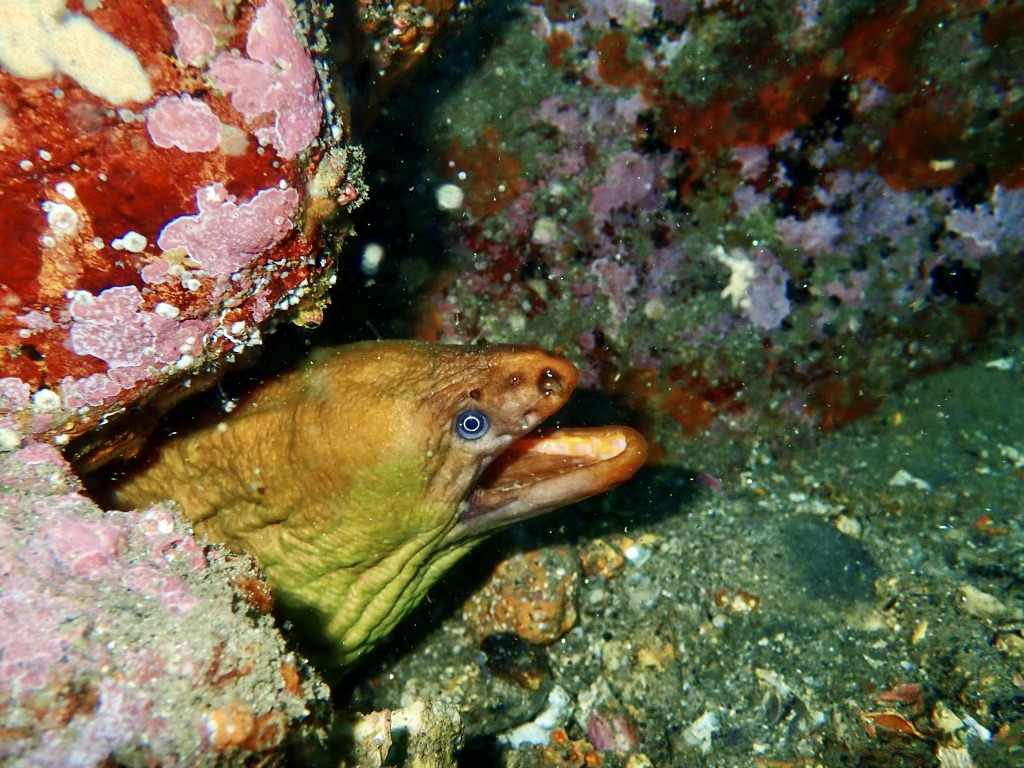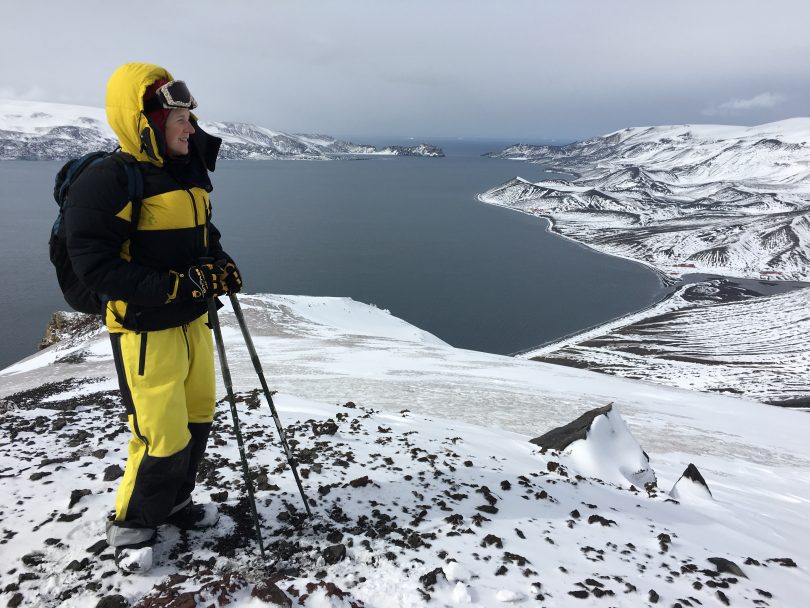
Dr Fraser is pictured on a trip sampling soils and mosses on volcanic Deception Island in Antarctica. Photo: supplied.
As you are reading this, a damp and salty sample of Durvillea Potatorum [commonly known as bull kelp] collected off the coast near Tathra, is making its way through New Zealand customs on its way to the lab of Dr Ceridwen Fraser [also known as Crid].
Dr Fraser, an associate professor at the Department of Marine Science at the University of Otago, New Zealand, will analyze the kelp’s DNA over the next week and her findings will be part of an online forum based at the Bega Vallet Commemorative Civic Centre in Bega, on Friday (May 17) at 11:00 am.
The forum, the second in a series of five science engagement events to be held this year, is supported by Inspiring Australia and hosted by Bournda Environmental Education Center (EEC). It’s free to attend and open to the public, with a particular emphasis on high schools participating.
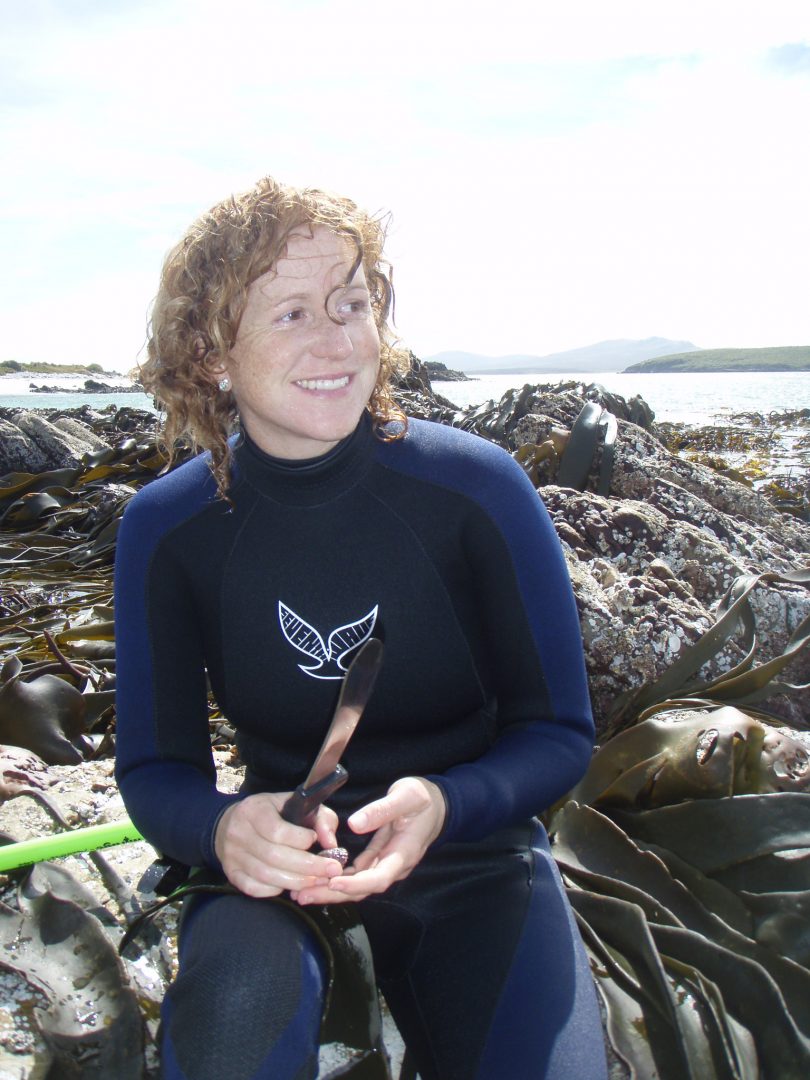
Dr Fraser has extensive knowledge about marine environments all over the world – here, she is collecting invertebrates and kelp samples from the Falkland Islands near South America. Photo: supplied.
“By providing Crid with the kelp sample, which was collected off the coast near Tathra by our marine educator Luke Brown, we’re not just listening to her presentation, we’re actually assisting with her research,” says Bounrnda EEC principal Doug Reckord.
With a strong interest in species distribution of marine plants and animals, Dr Fraser’s previous research has included looking at how big, physical processes such as earthquakes, volcanoes and climate change have influenced biodiversity patterns.
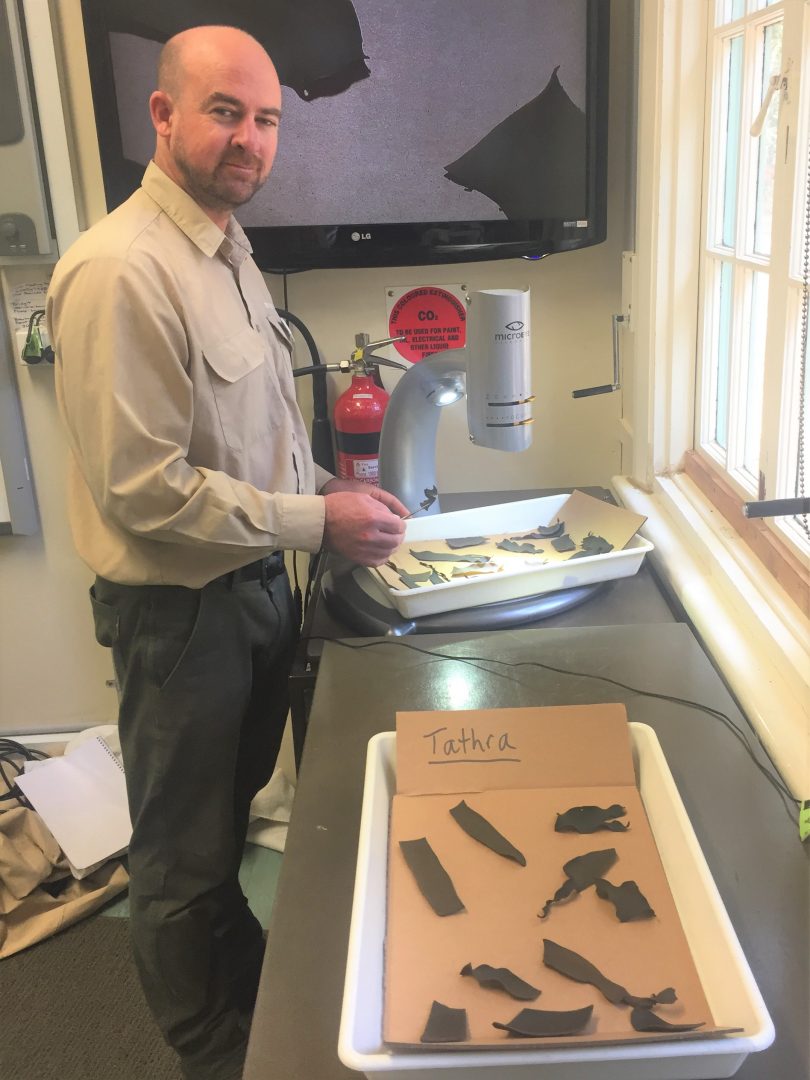
Bournda Education Centre’s marine educator, Luke Brown, with kelp samples collected off the coast of Tathra. Photo: Doug Reckord.
Tathra is the northern-most point where Bull Kelp is found in its south-eastern Australian habitat but it appears to be moving south as the ocean warms, making it a useful indicator species for Dr Fraser to analyze.
“We’ve been lucky enough to have Crid come to the Far South Coast for previous Sapphire Coast Science Festivals and she recently moved to New Zealand to continue her research,” Doug explains.
“Crid is a career scientist, the mum of a young son and has some great stories about hiring crusty old sailors and sailing the southern oceans to do her research.”
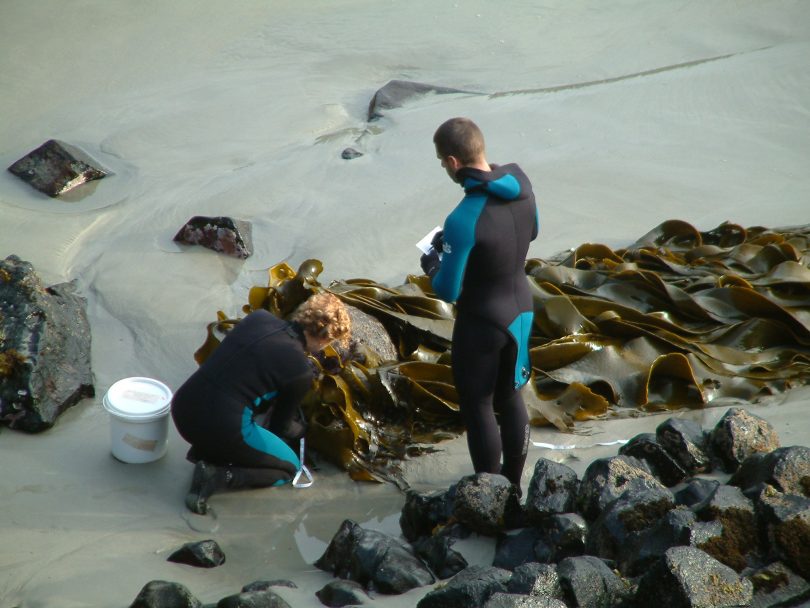
Dr Fraser [left] measuring the shape of kelp plants in southern New Zealand to describe a new species that she and her team found through DNA analyses. Photo: supplied.
“We’re all concerned about the future wellbeing of our marine environments,” Doug says “and collectively we can achieve more, especially with access to virtual connectivity.”
If you’d like to attend the Women In Science Forum in person, come to the Biamanga room at the Bega Civic Center at 10:45 am on Friday, May 17.
To view the forum from the comfort of your own home or school, please register in advance for this FREE webinar via Zoom.


